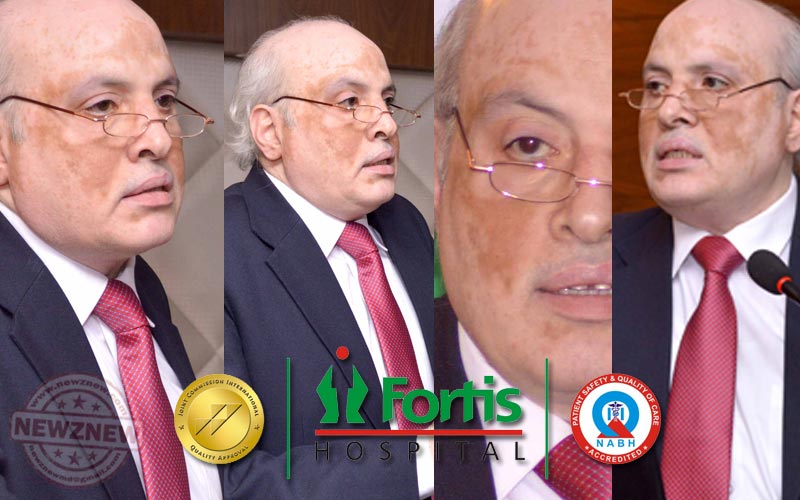-
Study presented at the 8th International Conference on Advanced Technologies & Treatments for Diabetes held in France and selected for Oral Presentation at the Conference
-
Limited sample study points to reversing all 3 biochemical markers of metabolic syndrome – high triglycerides, low HDL-C and high HbA1c (sugar) by a single drug for Diabetes
-
Single drug has the potential to correct and reverse glycemic abnormalities (Insulin resistance) as well as lipid abnormalities (hypertriglyceridemia and low HDL-C); may delay progression to diabetes and provide CV protection

NewZNew (Chandigarh) : Fortis Hospital, Mohali today presented the results of a limited research study conducted by its Endocrinology Department, led by Dr. K P Singh (Additional Director, Endocrinology), which may bring in in new hope for patients with Metabolic Syndrome (MetS), making effective management of diabetes now possible with a single drug. The limited research study is very significant as Metabolic Syndrome is a precursor to the development of diabetes and associated cardiovascular morbidity and mortality.
Because of the medical importance of the findings of the Study, it was selected for an Oral Presentation at the recently held ‘8th International Conference on Advanced Technologies & Treatments for Diabetes’ in France. Dr. K P Singh made the Presentation to over 5,000 doctors from around the world, making him one of the very few doctors in India to be given this unique honour for the third time since the last decade.
[blockquote author=”Talking about MetS, Dr. K P Singh said, ” pull=”pullright”]“The prevalence of MetS in the Indian subcontinent is around 30%. India is slated to be the Diabetes and Obesity capital of the world by 2020. Till now no single drug was available to combat all the deranged biochemical parameters of metabolic syndrome – Triglycerides, HDL – C and plasma glucose. With this, several patients can now hope to manage MetS by a single drug”[/blockquote]
Added, Dr. K P Singh, “With the launch of a drug, Saroglitazar, about two years ago, we decided to study the efficacy of a biochemical reversibility of Metabolic Syndrome with pre-diabetes & diabetes as an add-on therapy. We studied 118 patients with ALL three biochemical features of Metabolic syndrome i.e Hypertriglyceridemia (over 150mg/dL), HDL-C (less than 40 mg/dL in males and less than 50 mg/dL in females) and Pre-diabetics or diabetics (FPG over 100 mg/ dL). All these patients were already on statin therapy”.
“The Study revealed some very encouraging facts. There was significant reduction in HbA1c by 0.6%. There was a marked reduction in triglycerides by 62%. There was significant increase in HDL-C by 18.5% (p=0.004). This drug has the potential to correct and reverse glycemic abnormalities (Insulin resistance) as well as lipid abnormalities (hypertriglyceridemia and low HDL-C) and may delay progression to diabetes and provide CV protection. Saroglitazar effectively attempts to reverse all 3 biochemical markers of metabolic syndrome – high triglycerides, low HDL-C and high HbA1c.”
“The data from our study indicates Saroglitazar as a viable add-on therapy in the effective management of metabolic syndrome and presents the clinician with an option of addressing the dual aspect of dyslipidemia & dysglycemia with a single therapeutic agent,” he added.
He said: “We recommend that global studies on a larger scale and sample size be done on Saroglitazar and its effectiveness in preventing diabetes, treating dyslipidemia & CV risk reduction so this can become the one drug for cure for MetS unlike multiple drugs that such patients have to currently take.”






